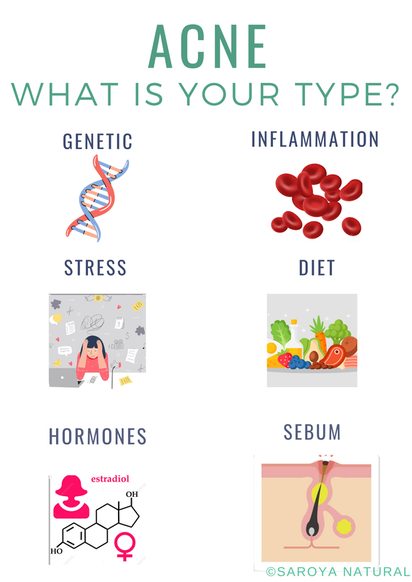|
I recently dropped a kid off at college and found myself stressing over how she’d take to adulting. Eighteen years of stability, comfort and organic food given up for a tiny box of a room, unhealthy food, and the freedom to binge on alcohol and god knows what else teenagers binge on. I suddenly seemed to be afflicted with amnesia, unable to recall any risky behavior I might have indulged in when I left home for college. My mom asked me if I’d taught her to cook. I rolled my eyes and said, “There are thousands of YouTube videos that she can watch to cook anything she wants. The correct question is, “Does she want to cook?””. What about managing money? We live in a world of digital currency. No more worrying about cash when there’s Venmo. The question is, what will she spend money on? As this conversation went on, I realized, somewhat triggered by Yuval Noah Harari’s works that I’d been reading, that two important questions to answer on our journey to adulting is “What do I really want?" and “Why do I want it?” As Google becomes our most trusted friend and guide, TikTok and Instagram tell us what we should like, and Amazon tells us what we should buy, do we have free choice anymore? “Know thyself” is age old wisdom but is probably more relevant and important today than it has ever been.
The oldest seeds of human self awareness can be traced through the hazy maze of history to almost ten thousand years ago. The roadmap for human life lies like a diamond in the rough within the cryptic, archaic Sanskrit literature called the Vedas. Aptly called Purushartha (literally translated to “self meaning”), the Vedas alluded to four objectives of human life: earn one’s living, experience life to fulfill one’s desires, live a life of balance to understand and abide by what’s right, and finally, learn to let go, be “free” of desire. Detailed works expounding upon each of these four objectives were subsequently recorded by various scholars. We can distill some core principles from this ancient wisdom and use them as a compass to help us live with awareness. Artha, pursuit of material objectives: The Purusharthas advocate for the pursuit of wealth and material comforts. However, this needs to be done within the boundaries of Dharma. Dharma is a word that is impossible to translate into English. In this context, it implies that the pursuit of wealth must be done without harming others and in an honest manner. The guidance is to work with utmost focus without being attached to the work, or the fruits of the work. Through our work, we contribute our bit to the betterment of humankind. How do we interpret this in modern society? Some thoughts:
0 Comments
Do you, or your loved one, suffer from acne? Do you feel like you've tried everything but nothing seems to work? There's good reason why most acne products don't work. The fundamental issues are:
What is acne? Acne is characterized as a chronic inflammatory disease. It presents as closed or open comedones - i.e. whiteheads and blackheads - and inflammatory lesions - i.e. pimples, nodules, pustules. Typically acne is prevalent in young adults with girls being affected at a younger age (average 12 years) than boys (average 15 years). Adults also suffer from acne, typically women, due to hormonal issues. Since acne is characterized as a disease, it is a medical condition. Causes of acne There are multiple factors that cause acne. Below are a few well known ones:
Current treatment for acne Modern treatment of acne falls under four categories:
By far, the most common treatment is topical - i.e. products applied on the affected area. The current practice for treating acne combines multiple methods and ingredients in the hope that one or more of them will address the patient's particular acne. The major drawback of such an approach is side effects of using too many products, bacterial resistance to antibiotics rendering them ineffective, and expense involved in buying multiple products. Ayurveda and acne Given how ancient Ayurveda is, it is quite remarkable how many of the modern acne pathways it covers. Below are various causes of acne that are addressed in Ayurveda:
In summary, both modern scientific research and Ayurveda point to multiple factors that cause acne. Therefore the most effective solution is one that is customized to your particular TYPE of acne. While there are many over the counter products for acne, you need to understand the cause of your particular type of acne and the ingredients that are suitable to address it for the products to be effective. The concentration of the active ingredients is also crucial in the efficacy of the products. The Ayurvedic approach offers the following benefits:
Sources:
https://www.ncbi.nlm.nih.gov/pmc/articles/PMC6560440/ https://www.ncbi.nlm.nih.gov/pmc/articles/PMC3051853/ https://www.ncbi.nlm.nih.gov/pmc/articles/PMC3780801/ https://www.ncbi.nlm.nih.gov/pmc/articles/PMC2835906/ https://www.aad.org/member/clinical-quality/guidelines/acne https://www.ncbi.nlm.nih.gov/pmc/articles/PMC6360964/ https://www.jidonline.org/action/showPdf?pii=S0022-202X%2815%2930101-9 https://www.ncbi.nlm.nih.gov/pmc/articles/PMC3366450/ https://www.mdpi.com/1420-3049/21/8/1063 https://www.researchgate.net/publication/330243222_Review_on_Yuvanpidika_Vis-A-Vis_Acne_Vulgaris |
|
|
© Saroya Natural 2023 | All rights reserved.
Website designed by Aadi M |
Contact Us |



 RSS Feed
RSS Feed